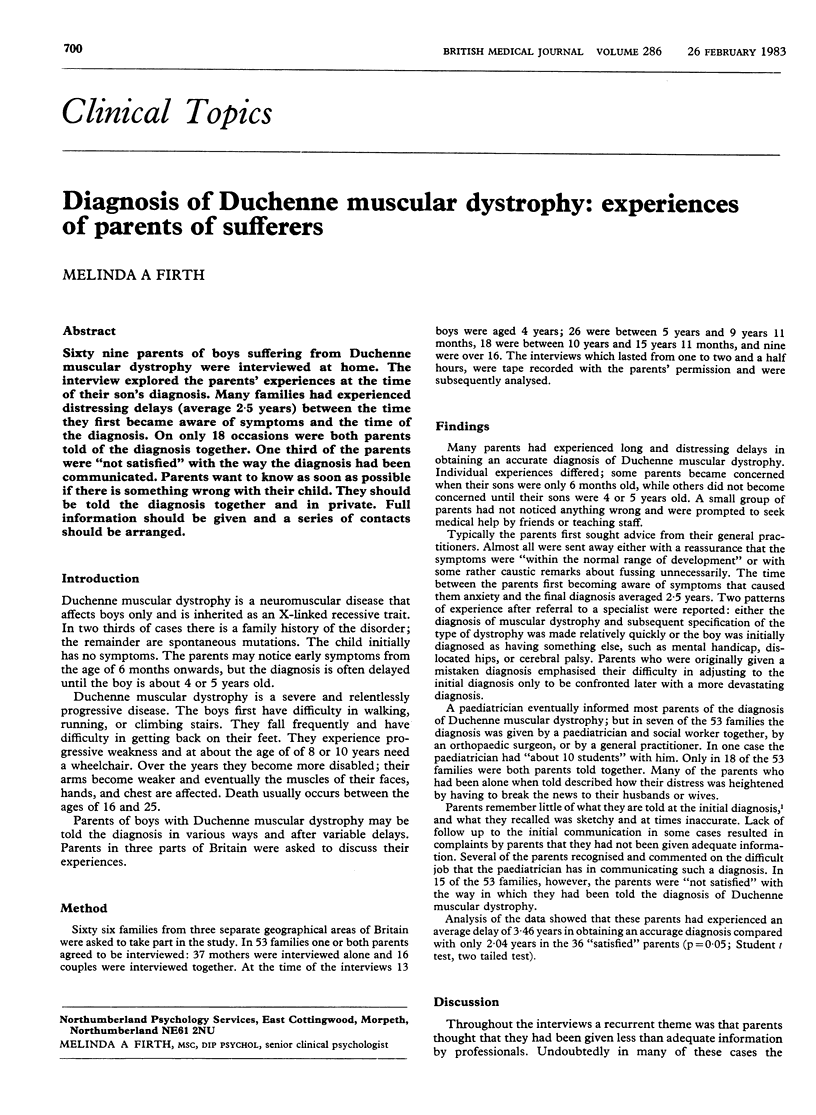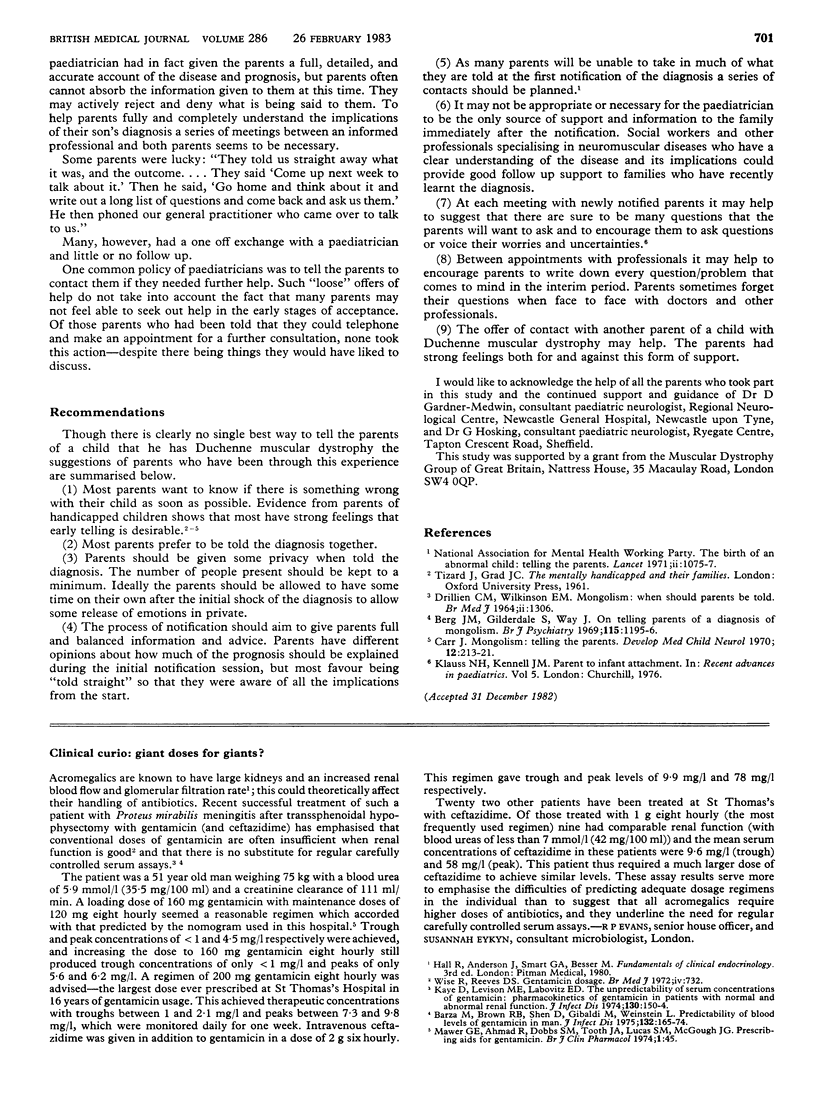Abstract
Sixty nine parents of boys suffering from Duchenne muscular dystrophy were interviewed at home. The interview explored the parents' experiences at the time of their son's diagnosis. Many families had experienced distressing delays (average 2.5 years) between the time they first became aware of symptoms and the time of the diagnosis. On only 18 occasions were both parents told of the diagnosis together. One third of the parents were "not satisfied" with the way the diagnosis had been communicated. Parents want to know as soon as possible if there is something wrong with their child. They should be told the diagnosis together and in private. Full information should be given and a series of contacts should be arranged.
Full text
PDF

Selected References
These references are in PubMed. This may not be the complete list of references from this article.
- Barza M., Brown R. B., Shen D., Gibaldi M., Weinstein L. Predictability of blood levels of gentamicin in man. J Infect Dis. 1975 Aug;132(2):165–174. doi: 10.1093/infdis/132.2.165. [DOI] [PubMed] [Google Scholar]
- Carr J. Mongolism: telling the parents. Dev Med Child Neurol. 1970 Apr;12(2):213–221. doi: 10.1111/j.1469-8749.1970.tb01892.x. [DOI] [PubMed] [Google Scholar]
- DRILLIEN C. M., WILKINSON E. M. MONGOLISM: WHEN SHOULD PARENTS BE TOLD? Br Med J. 1964 Nov 21;2(5420):1306–1307. doi: 10.1136/bmj.2.5420.1306. [DOI] [PMC free article] [PubMed] [Google Scholar]
- Kaye D., Levison M. E., Labovitz E. D. The unpredictability of serum concentrations of gentamicin: pharmacokinetics of gentamicin in patients with normal and abnormal renal function. J Infect Dis. 1974 Aug;130(2):150–154. doi: 10.1093/infdis/130.2.150. [DOI] [PubMed] [Google Scholar]
- Pilkington F. "Twenty years a-growing. Br J Psychiatry. 1969 Jan;115(518):1–8. doi: 10.1192/bjp.115.518.1. [DOI] [PubMed] [Google Scholar]


